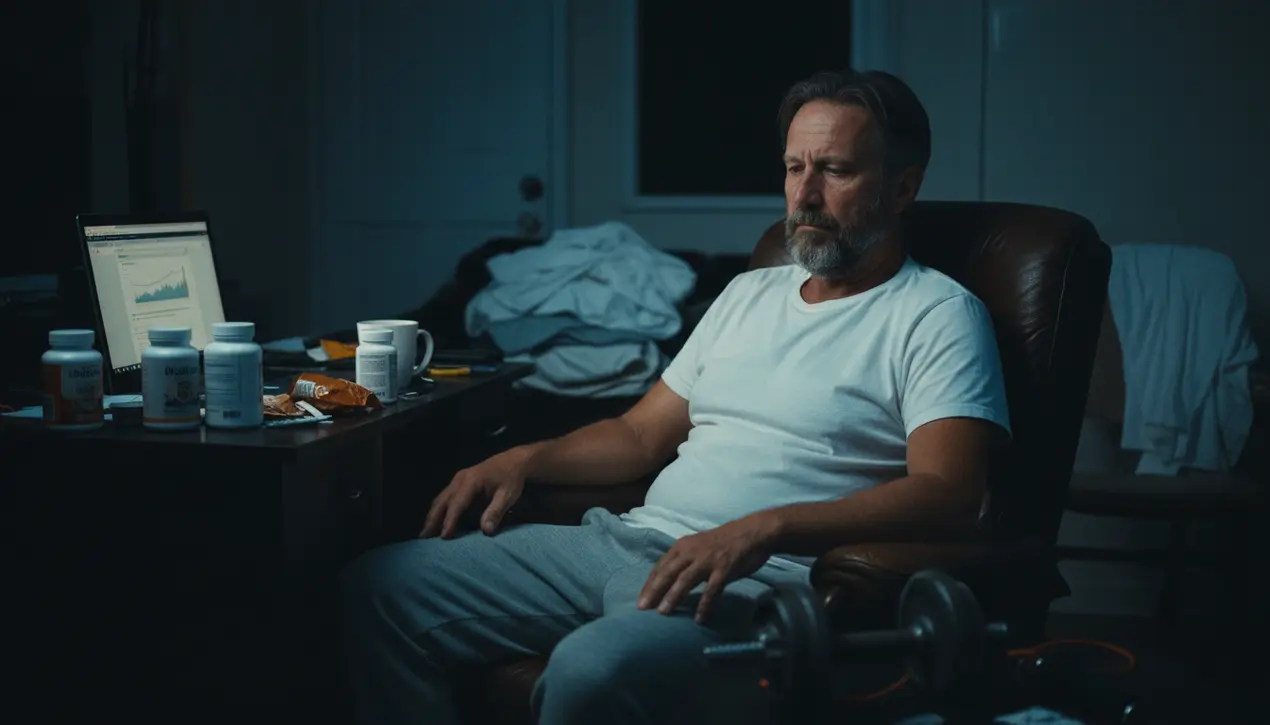
SciencemedicinePublic Health
Beyond the Hype: The Truth About Low Testosterone and Men's Health
ET
Ethan Brown
2 hours ago7 min read2 comments
The modern discourse on low testosterone, or 'Low T,' is often dominated by marketing that sells a simple solution to complex issues. This has created a booming industry, from online clinics to supplement brands, all promising renewed vitality.Yet, this frenzy frequently obscures a critical distinction: the difference between a legitimate medical condition and the normal hormonal fluctuations of life. Clinically diagnosed hypogonadism is a serious condition characterized by consistently low testosterone levels in the blood alongside specific symptoms like severe fatigue, diminished sex drive, and loss of muscle mass.This diagnosis requires thorough evaluation by a doctor, and treatment with supervised testosterone replacement therapy (TRT) can be a valid medical intervention. However, the current narrative often medicalizes the natural, gradual decline in testosterone that occurs with age, incorrectly blaming it for everything from career burnout to general unhappiness.The truth is more complex. Foundational lifestyle choices have a profound impact on hormonal health.Chronic stress, poor sleep, a diet of ultra-processed foods, and a lack of physical activity can significantly depress the body's natural testosterone production. Before considering medication or supplements, the most effective strategies are often lifestyle-based: ensuring 7-9 hours of quality sleep, incorporating regular strength training, managing stress, and eating a nutrient-rich diet with sufficient zinc and vitamin D.The financial incentives are a major driver of the 'Low T' phenomenon. With the global TRT market valued in the billions, there is a clear motivation to broaden the definition of the condition.Simultaneously, the supplement industry markets proprietary blends with ingredients like ashwagandha and tongkat ali, making bold claims backed by limited, often biased, research. For men concerned about energy, mood, or drive, the first step should not be an online prescription service or an unproven supplement.It should be a comprehensive review of daily habits and a visit to a primary care physician to rule out other common causes like thyroid issues, depression, or sleep apnea. Achieving lasting vitality is a marathon built on consistent, healthy lifestyle choices, not a sprint fueled by the allure of a quick fix.
#low testosterone
#hormone health
#men's health
#herbal supplements
#medical trends
#editorial picks news
Stay Informed. Act Smarter.
Get weekly highlights, major headlines, and expert insights — then put your knowledge to work in our live prediction markets.
Related News
Comments
Loading comments...
© 2025 Outpoll Service LTD. All rights reserved.